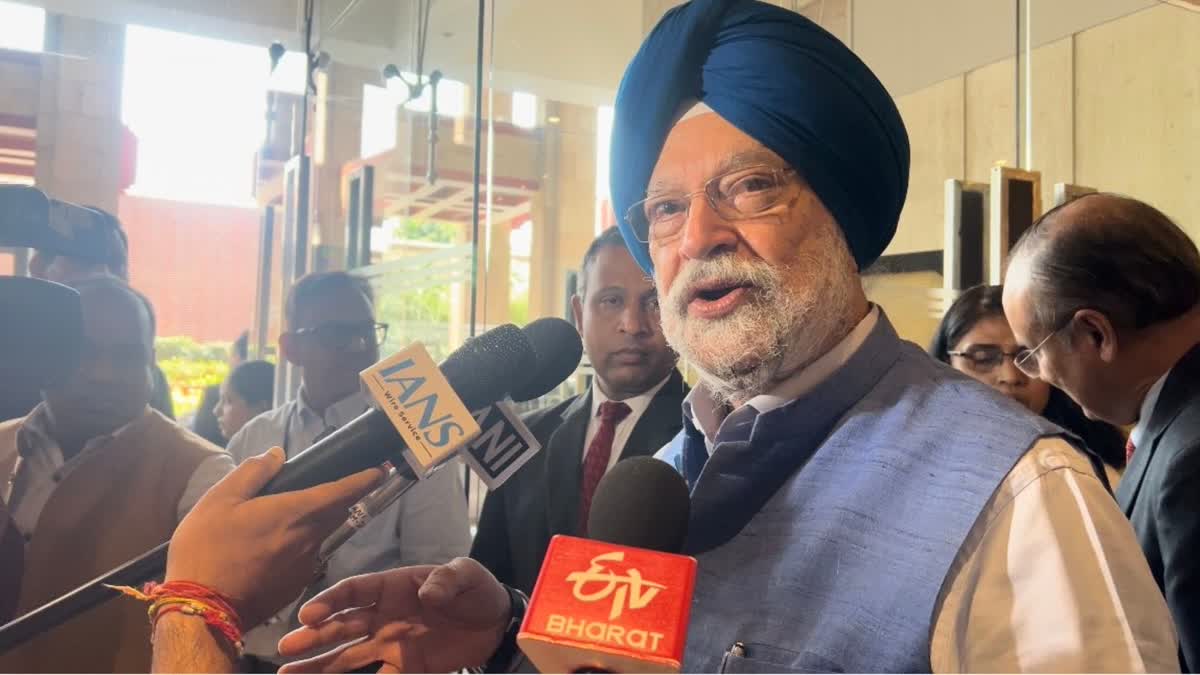New Delhi: India is on course to meet its ambitious target of blending 20% ethanol with petrol by the Ethanol Supply Year (ESY) 2025-26, according to Hardeep Singh Puri, Minister for Petroleum & Natural Gas.
Speaking at the 12th CII Bioenergy Summit 2024, Puri highlighted the government's proactive policies that allowed the country to surpass its earlier 10% blending target five months ahead of schedule.
The initial deadline for achieving the 20% target was set for 2030, but has since been revised to October 2025. Puri emphasized that a comprehensive roadmap for the biofuel sector will be developed following this deadline. He acknowledged the challenges of balancing availability, affordability, and sustainability in the Indian energy market but affirmed that blending ethanol remains a viable solution amid rising food-stock prices.
Puri provided key updates, noting significant foreign exchange savings and reduced carbon emissions from 2014 to 2024. The rise in crude oil substitution through ethanol blending has also positively impacted farmer incomes. Currently, there are 400 E100 fuel pumps operational across four states, Uttar Pradesh, Maharashtra, Karnataka, and Tamil Nadu, preparing India for the future of next-generation automobile fuels.
The Minister highlighted the importance of collaboration between India and Brazil in the bioenergy sector, especially as Brazil holds the G20 presidency this year. He urged both countries to share technology and expertise, noting that the Global Bioenergy Alliance, initiated during India’s G20 chairmanship, aims to unite the largest biofuel consumers and producers to advance biofuel development.
Brazil's Ambassador to India, Kenneth Felix Haczynski da Nobrega, echoed Puri’s sentiments, addressing the shared climate challenges facing both nations, including weather-related disruptions to food security. He reiterated the Global Bioenergy Alliance's call for an inclusive energy transition during G20 ministerial discussions in Brazil.
Industry leaders also expressed optimism about the bioenergy sector. Shishir Joshipura, Co-chairman of the CII National Committee on Bioenergy, projected that the sector could generate over 1 million jobs, particularly in rural areas.
After the summit, Minister Puri, speaking to media persons, said that they were supporting farmers but the farmers' movement was aimed to give electoral advantage to Congress in Haryana. "Here our PM is investing Rs 14000 crore to build toll free public toilets and these people are imposing tax on toilets," he said.
The summit focused on fostering collaboration among industries, governments, and academia to achieve equitable global goals and mitigate climate change, emphasizing the need for cooperation between the Global South and Global North.
As India strives to enhance its bioenergy capabilities, the path forward appears promising, with significant opportunities for economic growth and environmental sustainability.



